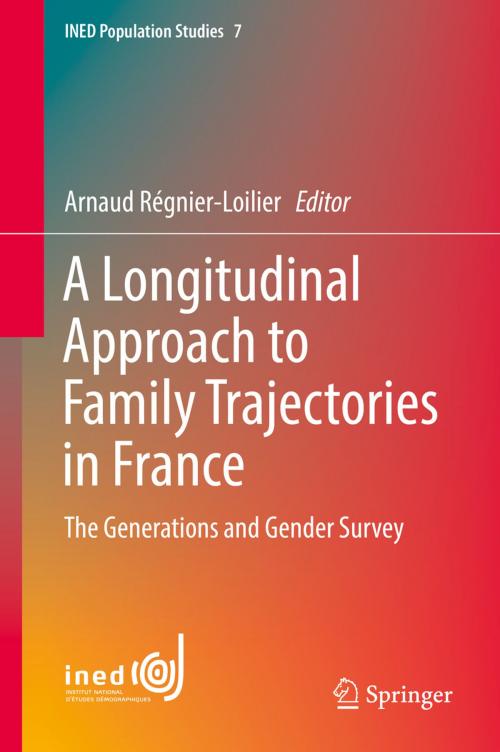A Longitudinal Approach to Family Trajectories in France
The Generations and Gender Survey
Nonfiction, Social & Cultural Studies, Social Science, Demography, Sociology| Author: | ISBN: | 9783319560014 | |
| Publisher: | Springer International Publishing | Publication: | June 14, 2017 |
| Imprint: | Springer | Language: | English |
| Author: | |
| ISBN: | 9783319560014 |
| Publisher: | Springer International Publishing |
| Publication: | June 14, 2017 |
| Imprint: | Springer |
| Language: | English |
Adopting a longitudinal approach, this book examines the dynamics of union and family formation in France and its effects on various aspects of life, such as employment, intergenerational transfers, etc. Drawing on data from a survey in which the same respondents were interviewed three times at three-year intervals, the book explores how demographic behaviours are influenced across the life course at individual level and assesses some of their consequences.
The contributors give a clear understanding of how family behaviours are constructed and redefined. They track changes in respondents’ lives in order to pinpoint the factors that prevent couples from realizing their fertility intentions, for example, or to identify certain determinants of union formation or dissolution. They also provide a more detailed picture of the changes that shape family behaviours, such as the impact of a birth on the working career or on intergenerational support, and much more.
Using longitudinal data from the French version of the Generations and Gender Survey (GGS), this book addresses family and childbearing behaviours dynamically, as processes that interact with each other and with the other components of each individual's life course.
Adopting a longitudinal approach, this book examines the dynamics of union and family formation in France and its effects on various aspects of life, such as employment, intergenerational transfers, etc. Drawing on data from a survey in which the same respondents were interviewed three times at three-year intervals, the book explores how demographic behaviours are influenced across the life course at individual level and assesses some of their consequences.
The contributors give a clear understanding of how family behaviours are constructed and redefined. They track changes in respondents’ lives in order to pinpoint the factors that prevent couples from realizing their fertility intentions, for example, or to identify certain determinants of union formation or dissolution. They also provide a more detailed picture of the changes that shape family behaviours, such as the impact of a birth on the working career or on intergenerational support, and much more.
Using longitudinal data from the French version of the Generations and Gender Survey (GGS), this book addresses family and childbearing behaviours dynamically, as processes that interact with each other and with the other components of each individual's life course.















